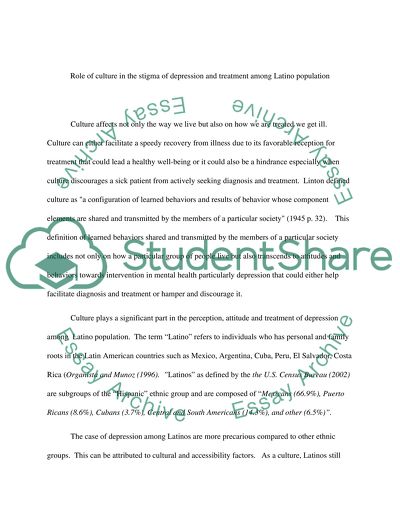Cite this document
(“Stigma of depression and treatment among hispanic/latino population Research Paper”, n.d.)
Retrieved from https://studentshare.org/nursing/1658469-stigma-of-depression-and-treatment-among-hispaniclatino-population
Retrieved from https://studentshare.org/nursing/1658469-stigma-of-depression-and-treatment-among-hispaniclatino-population
(Stigma of Depression and Treatment Among hispanic/Latino Population Research Paper)
https://studentshare.org/nursing/1658469-stigma-of-depression-and-treatment-among-hispaniclatino-population.
https://studentshare.org/nursing/1658469-stigma-of-depression-and-treatment-among-hispaniclatino-population.
“Stigma of Depression and Treatment Among hispanic/Latino Population Research Paper”, n.d. https://studentshare.org/nursing/1658469-stigma-of-depression-and-treatment-among-hispaniclatino-population.


